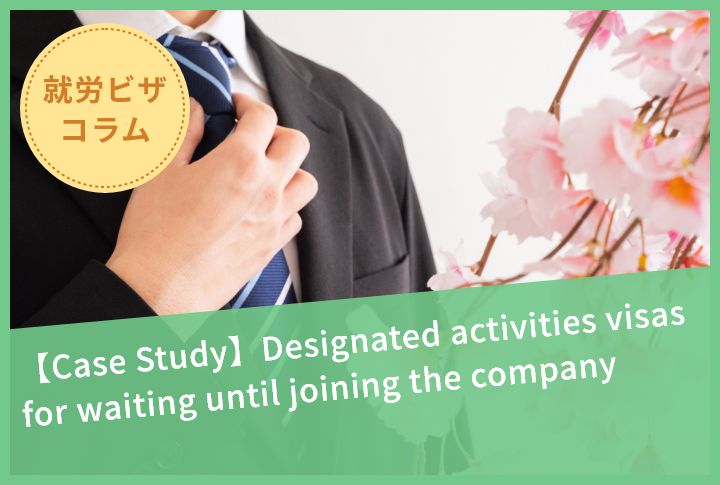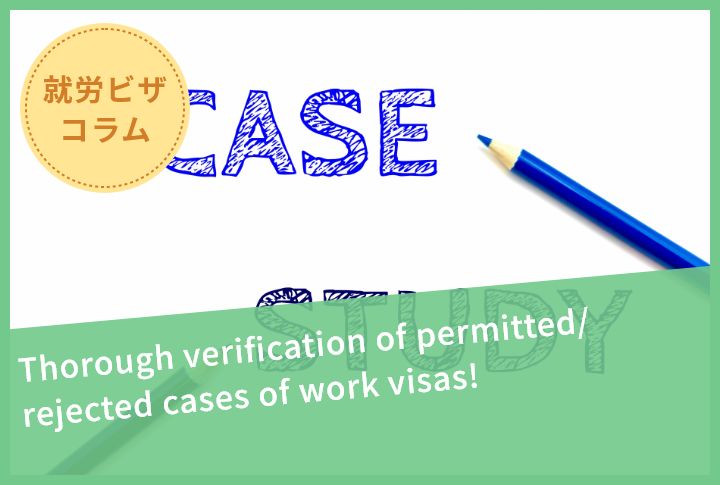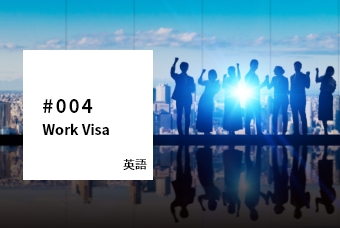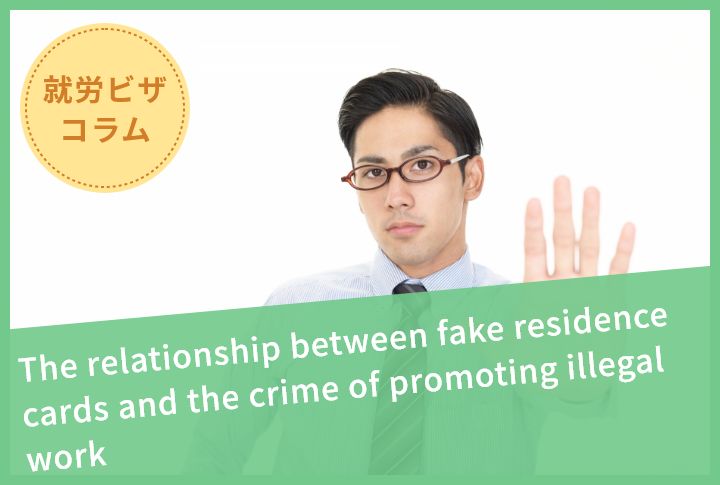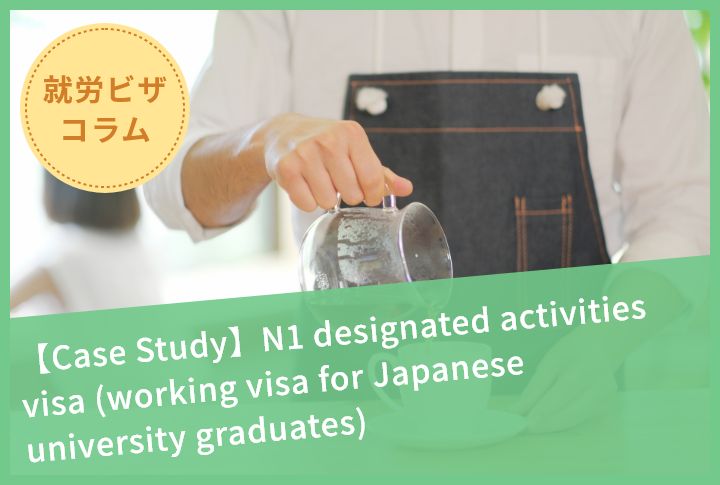Thorough explanation of the Special Highly Skilled Foreign Professional System (J-Skip)
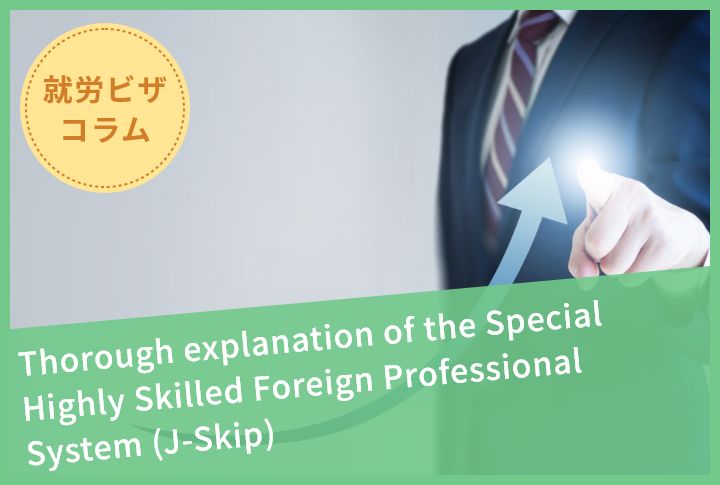
From April 2023, the “Special Highly Skilled Foreign Professional System” (J-Skip) was newly introduced.
Roughly speaking, it is a system that for inviting foreigners with extremely excellent knowledge and skills with advanced expertise in fields such as academic research and corporate management to come and work in Japan more and more, the conditions for obtaining a status of residence (visa) will be relaxed and various benefits will be added.
In this column, we will explain the background behind the creation of the “Special Highly Skilled Foreign Professional System” (J-Skip) and the details of the system.
Index
1. What is a Specially Highly Skilled Foreign Personnel?
Specially Highly Skilled Personnel are extremely talented foreigners.
The prerequisite for this system is the status of residence of “Highly Skilled Professional”.
>> Click here for Highly Skilled Professional conditions
Specially Highly Skilled Personnel were created in 2015 to promote economic growth in Japan.
- Bring new innovation to Japanese industry
- Promoting the development of a professional and technical labor market through friendly competition with Japanese people
- Expected to increase the efficiency of the Japanese labor market
The image of a Specially Highly Skilled Personnel is someone like the one above.
In short, we want talented foreigners to come to Japan to open new ways of working, research, and corporate activities in Japan.
The establishment of this new system is different from the system for Highly Skilled Professional that has been established so far, so that the status of residence of “Highly Skilled Professional” will be granted if “educational background or work experience” and “annual income are above a certain level” is a big feature.
2. Background of the establishment of the Special Highly Skilled Foreign Professional System
The background to the creation of the Special Highly Skilled Foreign Professional System, 8 years after the establishment of the Highly Skilled Profession in 2015 is that the current government, including Prime Minister Kishida, regard adaptation to “new capitalism” and “investment in human resources for the post-COVID society” as urgent issues.
Excellent human resources with the world’s most advanced knowledge and skills will be “scrambled around the world”.
In 2022, Prime Minister Kishida said, “Singapore, Indonesia, New Zealand and other countries are introducing (reviewing) the status of residence system and preferential treatment in order to attract more highly skilled human resources. We have continued to make efforts to do so, but judging from the situation in the world, we are still behind of them.”
(Partially quoted from the Immigration Services Agency website)
Furthermore, at the “Council for Creating the Future of Education “, it was announced to the relevant ministers that “amid increasing competition to secure human resources in countries around the world, reforms will be implemented, including the creation of a new system that will be on par with the rest of the world, not only for international students, but also for the acceptance of highly skilled personnel. The plenary session, the “Council for the Realization of New Capitalism “, and the “Council of Relevant Ministers on the Acceptance and Harmonious Coexistence of Foreign Human Resources ” should work together to materialize this within the current fiscal year. ” (Quoted from the minutes of the Council for Creating the Future of Education)
In response to this, the Special Highly Skilled Professional System was born.
3. Requirements for recognition as a Specially Highly Skilled Foreign Personnel
The “Highly Skilled Professional” system is divided into three categories, which “advanced academic research activities” (university professors and researchers, etc.), “advanced specialized/technical activities” (engineers working at companies, etc.), and “advanced management/administration activities.” (Company managers, etc.). Points are assigned to items such as “educational background,” “work experience,” and “annual income,” depending on their characteristics, if the total points are 70 points or more, they are recognized as a Highly Skilled Foreign Professional and are granted a Highly Skilled Professional visa.
In the Special Highly Skilled Foreign Professional System, apart from the point system, they have expanded the requirements so that if you have a certain level of academic background or work experience and annual income, you can obtain a Highly Skilled Professional visa as a “Special Highly Skilled Foreign Personnel”.
The required work experience and annual income are those engaged in “advanced academic research activities” (university professors, researchers, etc.) or those engaged in “advanced specialized and technical activities” (engineers who develop new products at companies, international lawyers, etc.) is
10 years or more of practical experience in the business you are going to engage in, and an annual income of 20 million yen or more
one of the conditions must be met.
In addition, if those engaged in “advanced management and management activities” (managers of companies, etc. that conduct global business development, etc.)
is a condition.
 (From the Immigration Services Agency website)
(From the Immigration Services Agency website)
4. Preferential treatment for Specially Highly Skilled Foreign Personnel
As shown in the table above, if a person is recognized as a Specially Highly Skilled Foreign Personnel, not only the person but also their family members will receive preferential treatment.
In principle, the first status of residence granted to Highly Skilled Foreign Personnel is “Highly Skilled Professional No. 1.”
If you have a status of residence as Highly Skilled Professional No. 1, there are preferential treatment such as
- Permitting multiple residence activities
- 5 years of residence
- Relaxation of requirements for Permanent Rsident permit (regular status of residence requires “continuing” to stay in Japan for 10 years, but it will be shortened to 1 year at the shortest)
- pouse’s employment
- Accompaniment parents under certain conditions
- Accompaniment of domestic servants under certain conditions
- Priority processing for immigration and residence procedures
If recognized as a Specially Highly Skilled Foreign Personnel, in addition to this,
- Use of priority lanes installed at large airports, etc.
becomes possible.
There is a status of residence called “Highly Skilled Professional No. 2, “which provides more preferential treatment compared to Highly Skilled Professional No. 1.
In addition to the preferential treatment granted to Highly Skilled Professional No. 1, Highly Skilled Professional No. 2, there are preferential treatment such as
- In addition to the activities permitted under “Highly Skilled Professional No. 1”, you can engage in almost all activities that are generally permitted under your status of residence for employment.
- The period of stay becomes “indefinite”
In other words, there are almost no restrictions on activities and period of stay in Japan.
Generally, 3years or more of activity is required to transition from Highly Skilled Professional No. 1 to No. 2.
If you are recognized as a Special Highly Skilled Foreign Personnel, you will be able to transition to Highly Skilled Professional No. 2 after 1 year of activities.
In addition, there are special preferential treatment for those who are recognized as “Specially Highly Skilled Foreign Personnel”.
Concerning the inclusion of foreigners as “domestic servants”.
Under the conventional Highly Skilled Professional visa, there are requirements such as “the employee is planning to leave the country with their employer” and “the employer has a child under the age of 13” in order to accompany a domestic servants..
Unlike Japan, where the family takes care of housework and childcare, there is also a culture in other countries, in which housework and childcare are entrusted to “domestic servants” such as housekeepers and babysitters.
Foreigners with a high standard of living who are recognized as “Specially Highly Skilled Foreign Personnel” may feel more comfortable entrusting their family and personal affairs to familiar domestic servants.
Considering these circumstances, if a person is recognized as a Specially Highly Skilled Foreign Personnel,
- If the annual household income is 30 million yen or more, it is possible to employ up to 2 foreign domestic workers
- Does not impose family requirements such as having children under the age of 13
those requirements in above have been relaxed.
Employment requirements for spouses of Highly Skilled Foreign Personnel have also been relaxed.
Foreign nationals who have obtained status of residence as a dependent (spouse) of a foreign national residing in Japan are normally restricted from working in Japan.
Since they have been granted permission to stay in Japan as “dependents” of their husbands and wives, they will mainly be responsible for housework and childcare. The idea is that in order to work in Japan, you must obtain a status of residence that is stipulated by law.
Therefore, the employment of a foreigner who has obtained a status of residence as a “spouse” of a foreigner is usually must meet one of the following conditions.
- It is possible to work up to 28 hours a week with permission to engage in activities other than those permitted under the status of residence previously granted.
- Acquire a new status of residence that allows you to work in specialized and technical fields such as “Specialist in Humanities/International Services” and “Engineer” and work in the same way as other foreigners.
In the Special Highly Skilled Foreign Professional System, the above conditions are greatly relaxed.
For spouses, activities that fall under “research,” “education,” “engineers/specialists in humanities/international services,” and “entertainment,” as well as activities that fall under “education,” “art,” “religion,” and “skills”, “Even if you do not meet the requirements for career, etc., you are allowed to work 28 hours or more per week.”
In other words, with the status of being a “spouse of a Highly Skilled Foreign Personnel”, it became possible to work in Japan without the conventional restrictions.
I believe that this idea stems from the idea that in order to attract talented foreign workers to Japan, it is impossible to do so without a tolerant stance regarding the employment of their families.
In overseas, there are many countries with a culture of values that prioritize family life, as well as equal “career development for one’s own career”, “happiness in family life”, and “career development for one’s spouse”.
For highly talented foreign workers “to want to work in Japan with their families”, it is necessary to consider the employment of their spouses.
5. Flow of application for status of residence for Specially Highly Skilled Foreign Personnel
If you are recognized as a Special Highly Skilled Foreign Personnel, you will be issued a “Special Highly Skilled Foreign Personnel Certificate” and will be listed as “Special Highly Skilled Personnel” on the back of your residence card.
Applications for status of residence for Specially Highly Skilled Foreign Personnel are broadly divided into those three patterns below,
b) Currently staying in Japan with a different status of residence and would like to change your status of residence to Highly Skilled Professional No. 1. At that time, apply as a “Specially Highly Skilled Foreign Professional” and receive preferential treatment.
c) Obtained the status of residence for Highly Skilled Professional No. 1 through the Highly Skilled Professionals Point System for and is currently staying in Japan. To wish to receive preferential treatment as a Highly Skilled Foreign Personnel
In the case of a), apply for a “Certificate of Eligibility” for Highly Skilled Professional No. 1 at the relevant Immigration Bureau.
At the same time, you must submit materials that prove that you meet the requirements for Special Highly Skilled Foreign Personnel (educational background, work history, annual income) for the activities you intend to carry out in Japan.
A Certificate of Eligibility is document to clarify that indicates that the activities that a foreigner intends to carry out in Japan will meet the conditions for landing in Japan, such as which status of residence the foreigner falls under.
This column assumes that you are recognized as a “Specially Highly Skilled Foreign Personnel” and want to obtain the status of residence for Highly Skilled Professional No. 1 without using the points system, so that you will need to submit materials that prove your eligibility and obtain a Certificate of Eligibility.
In the case of b), since the foreigner already has a status of residence in Japan, they will apply for “application for change of status residence” to Highly Skilled Professional No. 1.
As in the case of a) above, to submit materials proving that you meet the requirements for a Highly Skilled Foreign Professional.
In the case of c), it is further divided into two patterns.
- If the period of stay on the Highly Skilled Professional No. 1 visa expires within about 3 months, apply for “Application for extension of period of stay“.
In this case as well, it is necessary to declare that the applicant falls under the category of Specially Highly Skilled Foreign Personnel.
By the way, those who already have the status of residence of Highly Skilled Professional No. 1 cannot immediately stay in Japan with that status of residence even if they do not meet the requirements for “Specially Highly Skilled Personnel” due to a decrease in annual income, etc. is not meant.
- If the period until the expiration of the period of stay for Highly Skilled Professional No. 1 is other than the above
We will newly apply for “Employment qualification certificate issuance application”.
At that time, you will be certified as a Specially Highly Skilled Foreign Personnel.
A employment qualification certificate is a document that the Immigration Bureau certifies that the activities stipulated by the status of residence currently held by foreigners staying in Japan match the actual work activities.
Normally, it is not necessary to obtain it, but if you want to be recognized as a Specially Highly Skilled Foreign Personnel, you will need to apply for this.
6. Summary of the Special Highly Skilled Foreign Professional System (J-Skip)
In this column, I explained the newly established “Special Highly Skilled Foreign Professional System “.
It is a system for accepting super-excellent foreign personnel in Japan, and it is a “narrow gate”.
However, it is also a system that provides a chance for foreigners to demonstrate their knowledge and skills in Japan.
Japanese language proficiency is not required, which was a point-adding factor for conventional Highly Skilled Professionals, so those who do not speak Japanese but who work at foreign-affiliated companies and IT companies who communicate in foreign languages such as English.
Alternatively, since business managers are not required to have an academic background, for example, business owners who dropped out of university but are earning more than 40 million yen will have the advantage of being able to work stably in Japan.
I think that there is also happiness that foreigners can get by living in Japan, such as cleanliness, good security, and the beauty of nature in the four seasons.
We hope that this column will also help those in charge of companies looking for excellent human resources to learn more about Special Highly Skilled Foreign Personnel.
When scouting foreign workers, they were given the following reasons for coming to Japan, such as ”the scope of employment for spouses has expanded dramatically,” ”it is now possible to bring a domestic servant smoothly,” and ”it is possible to apply for Permanent Resident in as little as 1 year.” To be able to appeal when various preferential treatment is taken will increase the number of cards in your hand.
The Special Highly Skilled Foreign Professional System (J-Skip) is a system that has just started, so it’s only natural that there are things you don’t understand.
We, Administrative Scrivener Corporation Daiichi Sogo Office, are experts in international business such as application for status of residence.
Not only to have a wealth of experience, but also strive to collect information on new systems that change daily regarding foreigners and foreigners living in Japan.
If you are even slightly interested in the Special Highly Skilled Foreign Professional System, please feel free to contact us for a free consultation.









